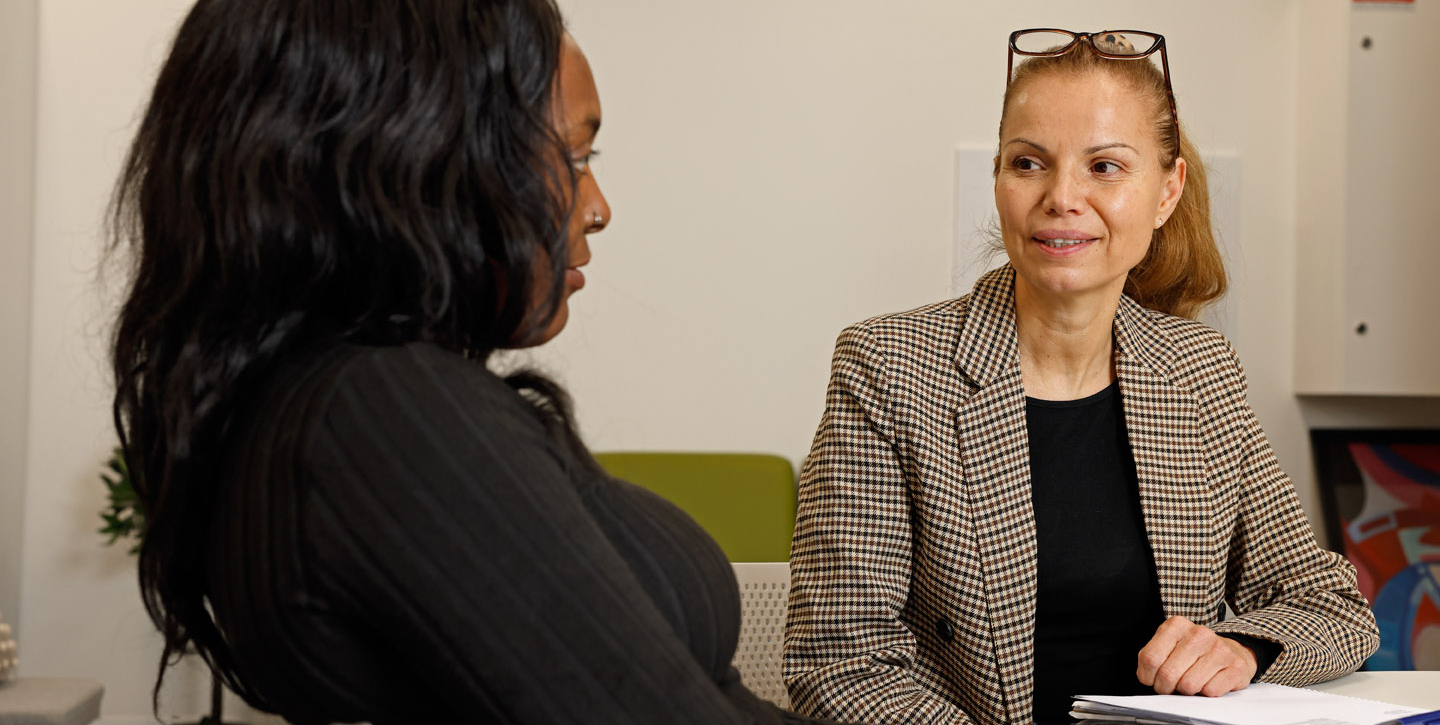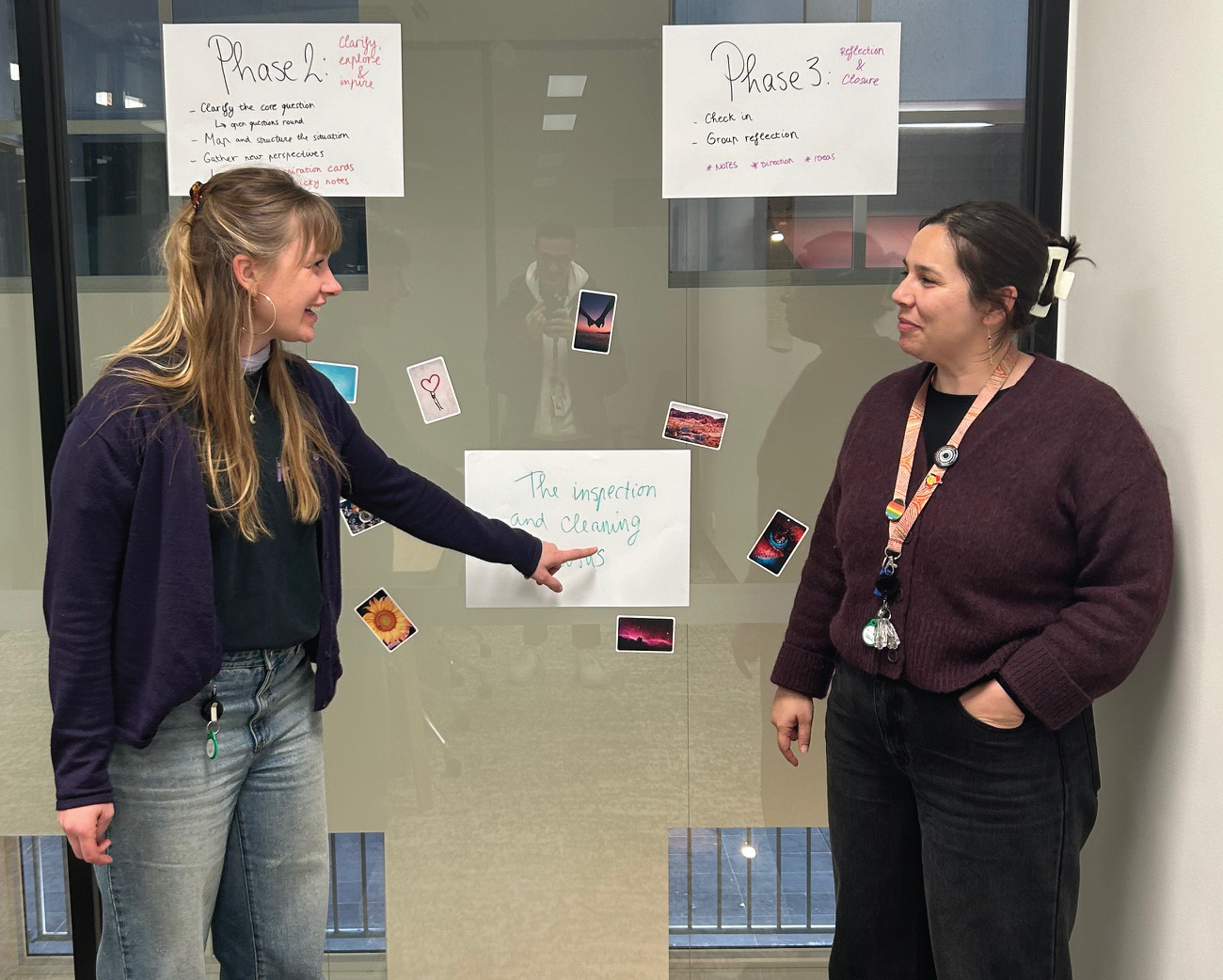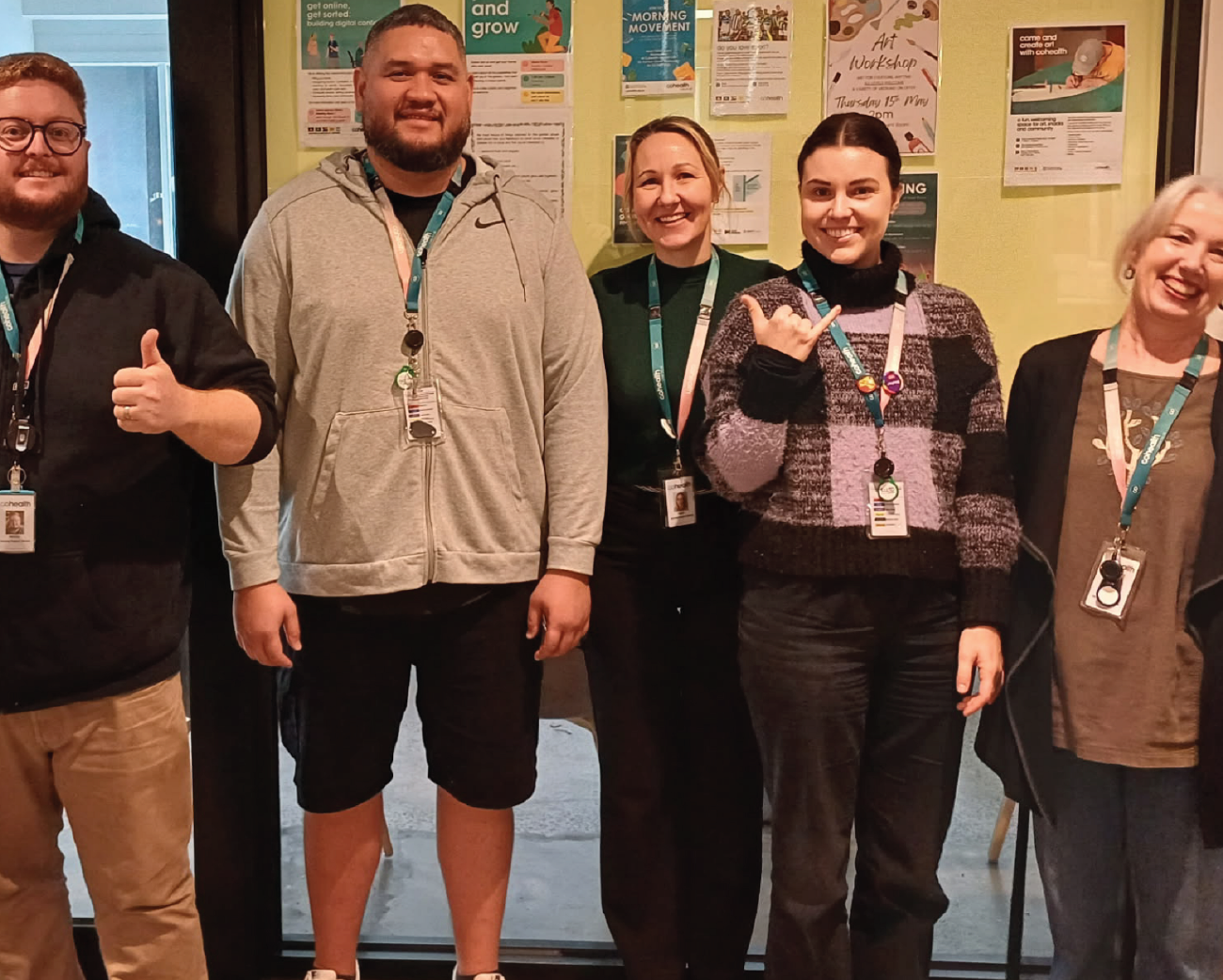Housing & Homelessness

In FY2024–25, Unison delivered targeted improvements across housing services, guided by renter feedback and sector collaboration.
We strengthened renter satisfaction, improved tenancy outcomes, and supported people transitioning from homelessness into safe, stable housing through initiatives like Make Room and our Supportive Housing Partnerships.
Renter Satisfaction Action Plan Outcomes
In response to feedback from our 2023 Renter Satisfaction Survey, Unison developed a targeted Renter Satisfaction Action Plan to improve renter experience, communication, and engagement. Over the last financial year, we’ve delivered meaningful changes across five key areas.
- Repairs and maintenance
We improved the way we manage repairs and maintenance by enhancing transparency and communication. New features, including photo submissions, preferred scheduling, and SMS updates, kept renters better informed about upcoming contractor visits. These changes contributed to a 6-point increase in satisfaction, with 75% of renters reporting they were satisfied with Unison’s repairs and maintenance service in 2025, up from 69% in 2023. - Feedback and complaints
We simplified the feedback process with a new online form, faster response times, and upgraded software. Staff training and updated policies have strengthened our approach. - Renter voice
We relaunched the Tenancy Advisory Group (TAG) in April, introduced a new Renter Voice Policy, and increased opportunities for renters to participate in decision-making. - Contacting Place Managers
Renters now receive email or SMS updates when their Place Manager changes, supported by clear building signage. This has led to increased renter satisfaction and 87% of renters reporting they know how to contact their Place Manager. - Better communication
We’re using preferred channels like email and SMS for timely updates annd improving key documents. We started developing a new website to make information easier to access, which launched in November 2025.
The results of the most recent Renter Satisfaction Survey in May 2025 show encouraging progress and will guide the next phase of our Action Plan.
2025 Survey Results
The May 2025 Renter Satisfaction Survey reflects the positive outcomes of our Action Plan and highlights areas where renters are experiencing real benefits:
OF RENTERS
Were satisfied with overall services
OF RENTERS
Reported that they know their rights and responsibilities
OF RENTERS
Were satisfied with their Unison Place Manager
Welcoming Our New TAG
In April 2025, we refreshed our Tenant Advisory Group (TAG), welcoming nine new members with diverse lived experience. Our TAG ensures that renter perspectives remain embedded in our decision-making.
TAG meets quarterly with our Executive Team to advise on service improvements, policy, communications, accessibility, and renter engagement. Their fresh insights are already changing how we communicate, resulting in clearer, more responsive, and grounded in what matters most to renters.
Backed by our Constitution and Renter Voice Policy, TAG provides a safe and formal platform for renters to share feedback, raise concerns, and influence how their housing is managed.
We’re incredibly grateful for the passion, expertise, and dedication our TAG members bring:
Ahmed Dahir, Andrew Johnston, Andrew Morriss, Belinda Lee, Colin Cook, David Worthley, Garry Liakoureas, Janie Miller, and Frank Otis.
Renter voice: Janie speaks about her experience as a member of TAG
Collaboration at Make Room
Unison, in partnership with the City of Melbourne, cohealth, Ngwala Willumbong Aboriginal Corporation (Ngwala), and Homes Victoria, delivers a transitional Supportive Housing Partnership at Make Room, 602 Little Bourke Street.
Funded by the City of Melbourne, the Victorian Government, and philanthropic partners, Make Room provides housing and wraparound support to people who have experienced rough sleeping in the CBD. With capacity for 50 residents, the initiative aims to reduce the experience of street homelessness and support those on the By Name List (BNL) into appropriate housing, assisting City of Melbourne’s aim towards ‘functional zero’.
The partnership brings long standing familiarity and expertise in supporting the complex needs of those on the BNL, most of whom experience long-term recurring homelessness, serious health issues, and the ongoing effects of prolonged trauma.
The project adopts a human rights approach to housing and healthcare, with a strong focus on harm reduction and the delivery of trauma-informed, person-centred, holistic, and strengths-based support. Guided by Housing First principles wherever possible, Make Room provides housing without preconditions, recognising stable housing as both a fundamental right and a critical foundation for improvement in other areas of life. Renters receive ongoing support tailored to their needs, working with them to maintain tenancies and navigate the systemic challenges transitioning from homelessness to stable housing.
Project Impact
On-site support & tenancy management
Committed over 2 years by Homes Victoria
Of renters reported improved engagement
Since moving into Make Room
Tenancy allocation
Achieved by June 2025
Renter Profile
IDENTIFY AS ABORIGINAL OR TORRES STRAIT ISLANDER
IDENTIFY AS WOMEN
LIVE WITH A DISABILITY
Supportive Housing Partnership in Action
The Make Room project came to life in January 2025 when renters began moving in. By June, the building was fully tenanted. Unison leads tenancy and property management, while cohealth provides housing support, peer support, health and wellbeing services including podiatry, physiotherapy, dietetics, dental care, and mental health support. Ngwala Willumbong Aboriginal Corporation (Ngwala) offers culturally safe support for Aboriginal and Torres Strait Islander renters, who make up 46% of Make Room’s community. Each renter receives tailored support, helping them with their individual goals. Renters are actively shaping their own outcomes, building routines, engaging with services, and working towards their future long-term housing goals.
Onsite team
Support Team
- 5× cohealth Housing Support Workers
- cohealth Dual Diagnosis Clinician (part-time)
- cohealth Peer Worker (part-time)
- cohealth Team Leader
- cohealth Program Facilitator (part-time)
- Ngwala Housing Support Worker (part-time)
Building Operations
- Unison Place Manager
- Unison Program Manager
- 2× Unison Housing First Practice Leads (full-time & part-time)
- 24/7 on-site security
Key Initiatives Delivered
Throughout the year, the team led a range of initiatives that helped build trust and connection with renters. As a result, many are now engaging with support services, maintaining their homes, and gaining confidence in their ability to sustain long-term tenancies.
- Centrelink Collaboration: The Make Room team met with Centrelink to better understand the barriers renters face when accessing Rent Assistance and the Disability Support Pension (DSP). 74% Make Room renters live with disabilities, as well as health conditions, and experience barriers in aiming to navigate the DSP process. In response, Centrelink will deliver an on-site workshop next financial year to guide renters through eligibility criteria, application steps, and common pitfalls, a key step toward improving income stability.
- Cohealth General Practitioners: Cohealth GP Dr Dean Membrey began regular outreach on Monday’s at Make Room, offering on-site physical and mental health support. His presence removes barriers for renters who struggle with mobility or navigating external health systems. Dr Membrey’s trauma-informed approach has already built trust and is helping to normalise healthcare engagement in a safe, accessible way.
- The Living Room Night Nurses: The Night Nurse team have provided weekend outreach support to renters requiring wound care.
- Phoenix Floor: Make Room includes a dedicated and secure floor allocated specifically for women and gender diverse folk who have experienced domestic violence. Support staff working at Make Room are trained in Multi-Agency Risk Assessment and Management (MARAM), equipping them to respond to family violence risk.

Unison Housing First Practice Leads at Make Room

cohealth team at Make Room
Private Rental Assistance in Action
Amid ongoing housing pressures, Unison’s Private Rental Assistance Program (PRAP) teams in Seddon and Werribee continued to provide vital early intervention for households at risk of homelessness.
Funded to establish or sustain 465 tenancies in 2024–25, the teams supported 1,758 individuals – more than triple their target. In addition, through PRAP Plus, they delivered practical, tenancy-related support such as help with rental inspections, utility connections and school enrolments, ensuring families could remain safely housed.
PRAP remains a critical, often overlooked, part of Victoria’s homelessness prevention system, helping to stop housing insecurity from becoming homelessness.
Strengthened VCAT Engagement
Throughout 2024–25, Unison maintained a dedicated Principal Advisor, Tenancy Tribunal position to lead our strategic approach to VCAT matters. This role delivered consistent case management, proactive risk identification, and targeted representation, while also providing the Executive with insights into emerging trends and policy opportunities. The position strengthened Unison’s capacity to achieve fairer tenancy outcomes and informed our broader advocacy efforts.
